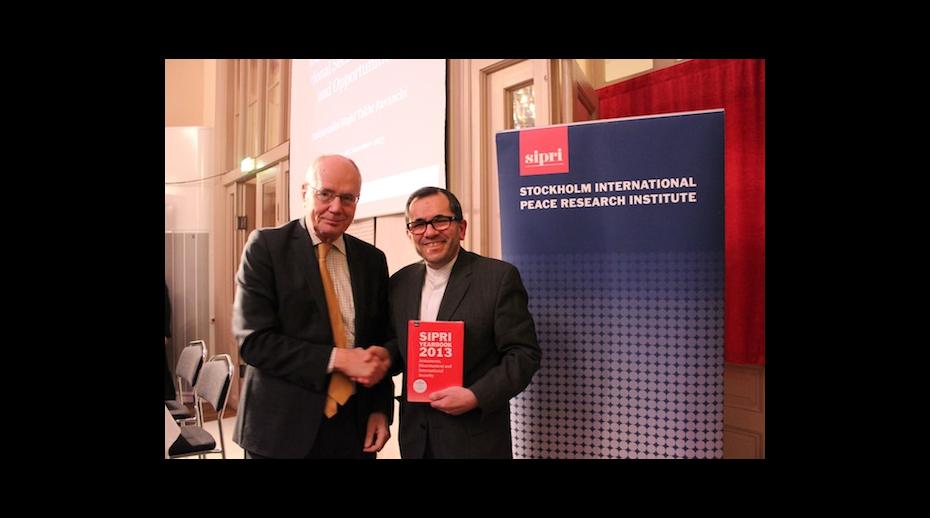
On 28 November SIPRI hosted a lecture by Majid Takht Ravanchi, Iran’s Deputy Foreign Minister for European and American Affairs and a leading member of the Iranian nuclear negotiation team.
In his lecture, Ravanchi stated that the recently elected Iranian government of President Hassan Rouhani promotes constructive engagement and good regional relations. He emphasized Iran’s continued security concerns in relation to the conflicts in Afghanistan, Iraq and Syria and expressed particular concern over the rise of extremism and sectarian violence that is giving rise to further instability and fragmentation across the region.
Ravanchi proposed that neighbouring countries should engage in confidence-building measures, dialogue and cooperation to address the region’s security challenges. He called for a halt to the ‘zero sum’ political security calculus that is widespread in the region and which, he believes, undermines constructive conflict-resolution strategies. The minister underlined the necessity of a political solution to the on-going conflict in Syria. While supporting the latest round of UN hosted talks, he was sceptical of the prospects for peace and for putting the country back together when the opposition groups are not unified.
After the recent round of negotiations in Geneva between Iran and the P5+1 states, Ravanchi indicated that Iran’s main objective in the negotiations on the country’s nuclear programme is to create a ‘win–win’ situation for both sides. The interim deal reached in Geneva had been difficult and time consuming but was an important step. Under this arrangement, Iran will retain the right to enrich uranium for its energy requirements. In return, Iran will provide the requisite assurances to the international community, including through enhanced cooperation with IAEA monitors, and will enjoy a degree of sanctions relief.
Based on his recent experience in the negotiations, Ravanchi identified two main obstacles to reaching a comprehensive nuclear deal between Iran and the P5+1. The first concerned the interim nature of the recent Geneva agreement, which leaves important issues to be clarified in follow-up negotiations. However, the absence of a common understanding among the parties about where the subsequent steps should ultimately lead meant that the next phase of negotiations will be even more difficult than those just concluded. At the moment there is not even a shared view about how long a comprehensive deal should remain in force.
The second concern is the significant domestic constraints on the negotiations. Ravanchi noted that key groups in the US and Iran viewed the recent talks with mistrust and suspicion. This affected the work of the negotiation team and complicated the prospects for reaching a long-term deal.
Read more about SIPRI's Wider Central Asia initiative or contact Theresa Höghammar for more information about the lecture.
Related SIPRI publications
Iran's Policy on Afghanistan: The Evolution of Strategic Pragmatism, SIPRI Report by Dr Bruce Koepke
'Time for a more comprehensive approach to the Iran nuclear negotiations', SIPRI Expert Comment by Shannon Kile
'Iranian–US engagement should focus on more than the nuclear issue', SIPRI Expert Comment by Dr Bruce Koepke